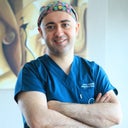Pre-testosterone trans FTM. I know that testosterone is known to cause cartilage in your nose to grow, would it cause an issue?
Hi all, Im a pre-testosterone trans ftm guy and Im looking into getting a rhinoplasty. I know that testosterone is known to cause the cartilage in your nose to grow, and im wondering if this would cause an issue with a nose job? If so, would it be best to wait until i’ve started testosterone and most substantial changes have already take place before getting this procedure, or would a nose job be possible and safe before testosterone? Thanks in advance for any insight!





